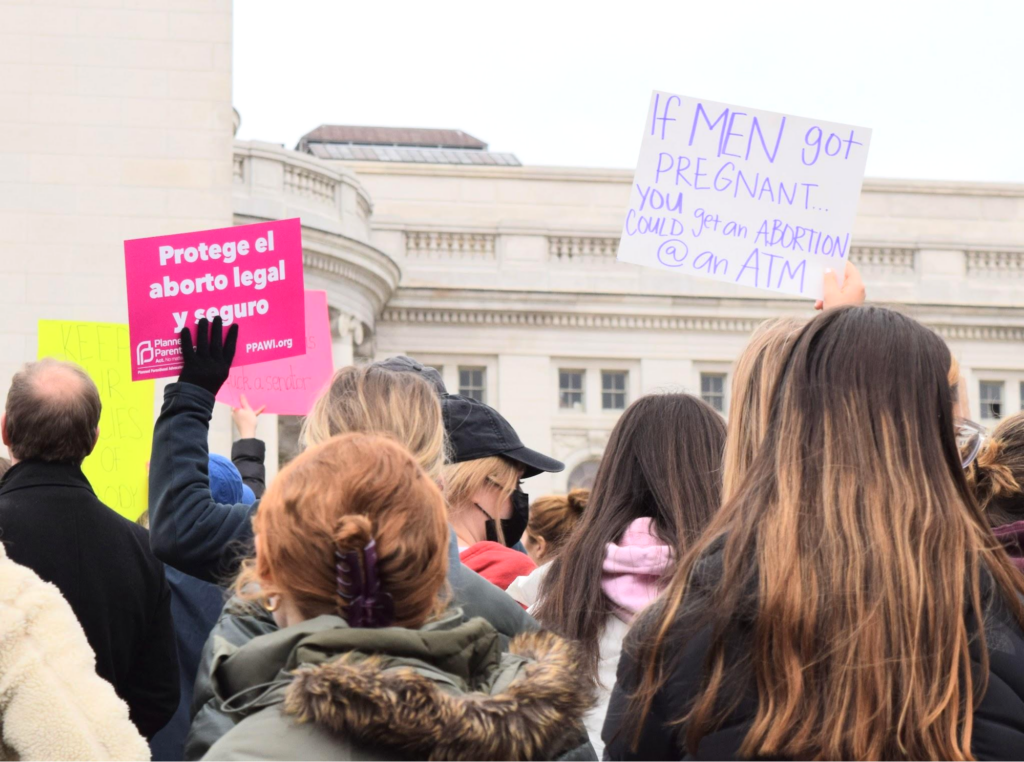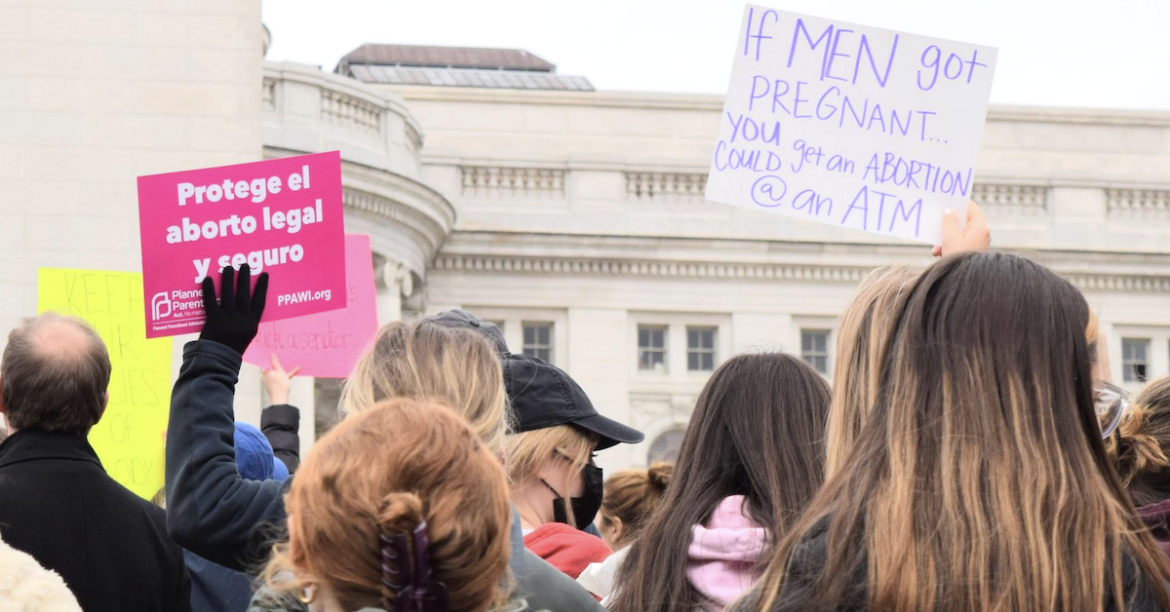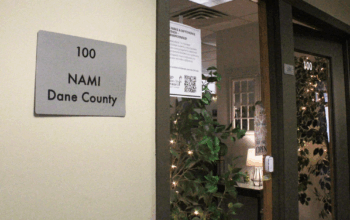In September 2023, Planned Parenthood in Madison and Milwaukee began providing abortions for the first time in 15 months. Within 24 hours of opening appointments, Planned Parenthood Wisconsin had filled all its slots for abortion services.
“Now abortion being available at Planned Parenthood or Wisconsin’s health centers in Milwaukee and Madison is awesome, and we’re very grateful,” said Analiese Eicher, the communications director for Planned Parenthood advocates of Wisconsin and Planned Parenthood of Wisconsin.
On June 24, 2022, in the landmark case Dobbs v. Jackson’s Women’s Health Organization, the United States Supreme Court overturned Roe v. Wade, ruling there is no constitutional right to abortion before fetal viability. This left abortion rights in the hands of state governments, uncovering laws that had long remained dormant and resulting in a frenzy across the country as legislatures and health care providers tried to decipher whether old laws still held.
In Wisconsin, shortly after the Dobbs ruling, Attorney General Josh Kaul and Gov. Tony Evers quickly moved to challenge a law known as the 1849 abortion ban, which anti-abortion groups leaned on to abolish abortion in the state.
“Women should not be denied the freedom to make fundamental reproductive health-care decisions,” Kaul said in a statement issued last August. “Our filing marks another important step in our fight to protect the freedom and safety of women in Wisconsin.”
Kaul, along with several doctors, asked the circuit court for a final decision governing whether the 1849 ban is enforceable despite several post-Roe laws that go against the so-called ban.
“If you used to have a law that women cannot own property, and then you have a law that women can own property, of course you’re gonna go with the more recent law,” said Karen Gallagher, an insurance lawyer who’s been practicing in Madison for over two decades. “Kaul’s preemptively saying we need some legal decision so that physicians and whoever participates in this are not worried about whether they are going to get arrested, thrown in jail and prosecuted.”
Planned Parenthood is also looking for a clear answer.
“Planned Parenthood at Wisconsin has maintained since the Dobbs decision that the 1849 statute does not apply to abortion, but there’s a lot of lack of clarity in the law,” Eicheder said. “We do not have a constitutionally protected right to abortion anymore with the Dobbs decision, and so we have an opportunity in the state of Wisconsin to codify that in our own constitution and to secure that right for Wisconsin residents.”
Sheboygan District Attorney Joel Urmanksi asked the court to dismiss Kaul’s case. On July 7, 2023, circuit court Judge Diane Schlipper denied Urmanksi’s request for a dismissal.
“The Court denies the motion to dismiss because the doctors state a claim upon which relief may be granted,” Schlipper said in her decision. “Specifically, they allege Urmanski threatens to prosecute Wisconsin physicians under [the 1849 law] for performing consensual medical abortions. Urmanski has no authority to do this because according to State v. Black, this pre-Roe statute says nothing about abortion.”
In 1994, in a case called State v. Black, the State Supreme Court ruled that the 1849 law only applied to “feticide,” meaning the killing of an unborn child without the mother’s consent.
“There is no such thing as an ‘1849 abortion ban’ in Wisconsin. A physician who performs a consensual medical abortion commits a crime only ‘after the fetus or unborn child reaches viability,’” Schlipper said, referring to a state law enacted in 1985.
While Schlipper denied Urmanksi’s request for a dismissal, the case remains open. No final ruling on the 1849 law has been made.
Planned Parenthood, however, has taken the dismissal as a green light to resume providing abortions in Wisconsin, which it had halted immediately following the Dobbs decision, “out of an extreme abundance of caution and concern, particularly for providers,” Eicher said.
Since Schlipper’s decision, things have changed. “With the clarity that the Dane County Circuit Court has provided, Planned Parenthood Wisconsin is very firm and confident in its legal standing and our providers that work with us.”
Even if Schlipper decides that the 1849 law does not ban abortion, it may take a while before abortion rights are codified into Wisconsin state law.
“Let’s say whoever lost believes the judge did something wrong; they could take the final order to the court of appeals and have it be reconsidered by an appellate court,” Gallagher said. “If they still don’t like the ruling, they can petition for review by the State Supreme Court.”
The state Supreme Court is not required to take a case. “They are selecting cases that have the most important issues,” Gallagher said. “Theoretically, when a court is partisan, they are probably selecting cases that further their own perspective, or where they think they can make a statement.”
Regardless of the ruling, physicians will continue to strive to provide care for their patients.
“With every decision that has been made, and ultimately with providers, they just want to provide health care,” Eicher said. “Abortion is health care, and they want to be able to provide health care to their patients.”






